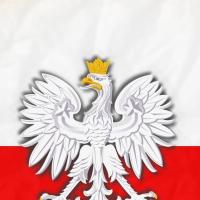Поруке: 42
Језик: English
ravana (Погледати профил) 10. август 2015. 15.42.21
pedrocordov (Погледати профил) 10. август 2015. 16.32.38
KStef (Погледати профил) 10. август 2015. 16.45.33
(Conservative liberalism):
https://en.wikipedia.org/wiki/Conservative_liberal...
Tempodivalse (Погледати профил) 10. август 2015. 17.00.52
ravana (Погледати профил) 10. август 2015. 17.04.24
Tempodivalse (Погледати профил) 10. август 2015. 17.08.58
In my rather limited experience with real-life Esperantists (not the pot-shot online crowd), I have found them remarkably independent-minded and welcoming, possibly because they themselves are, by society's standards, "atypical" in some way.
ravana (Погледати профил) 10. август 2015. 18.01.11
Polaris (Погледати профил) 10. август 2015. 18.16.16
ravana:I mean more open minded without prejudice .Well, I'm an American religious conservative, but that doesn't equate with being closed-minded or prejudiced. Some of the most closed-minded, fiercely intolerant, shockingly prejudiced people I have ever encountered call themselves liberals, leftists, or progressives, so that goes on on either side of the political spectrum. We need to be careful not to conflate the concepts.
The Esperanto movement is a multi-faceted group. At a recent meeting of our local Esperanto society, we discussed having a worship service in Esperanto, as others in the society are also religious / conservative. On the other hand, it is quite obvious to even a casual new-comer to the movement that many Esperantists are political leftists. Furthermore, I don't believe I have ever encountered such a strong element of anti-American animosity as I have in Esperanto political discussions--which sort of goes along with the territory of a language movement that considers English dominance to be a form of linguistic oppression (another sentiment commonly encountered among Esperantists).
It is important not to paint with too broad of a brush, however, and to remember that just as Esperanto can be used to put forth views that are leftist, communist, anti-religious, or politically liberal, etc., the same language can be used to put forth ideas that are right-wing, free-market, religious, tradition-honoring, and conservative. It's only a language, and nobody is entitled to claim it only for a particular school of thought.
TheRealFlenuan (Погледати профил) 10. август 2015. 18.21.18
Tempodivalse:What do you mean by "liberal" ? There are multiple definitions - classical liberalism, neoliberalism, etc.Generally speaking, they all mean the same thing—in favor of more freedom—just differing in that they are specific to various areas (e.g. economics, social policy, political freedoms, society in general, etc.), focusing on different problems, and achieve their goals through differing means.
The term "neoliberalism" is more specific; it refers to modern-day advocation for social liberalism combined with a policy of mild socialist economics and usually favor of democratic government. Classical liberalism was similar to modern libertarianism in that it prioritized economic freedoms (thus differs with neoliberalism) but also advocated for social freedoms.
They are also specific to certain time periods: for example, in much of the West, classical liberalism was most popular in the early and mid 19th century, and neoliberalism came about in the late nineteenth century, was mainstream by the 1910s, was unpopular in the 1940s and '50s, was revived in the '60s and '70s, and is the most popular ideology today.
ravana (Погледати профил) 10. август 2015. 18.22.10


